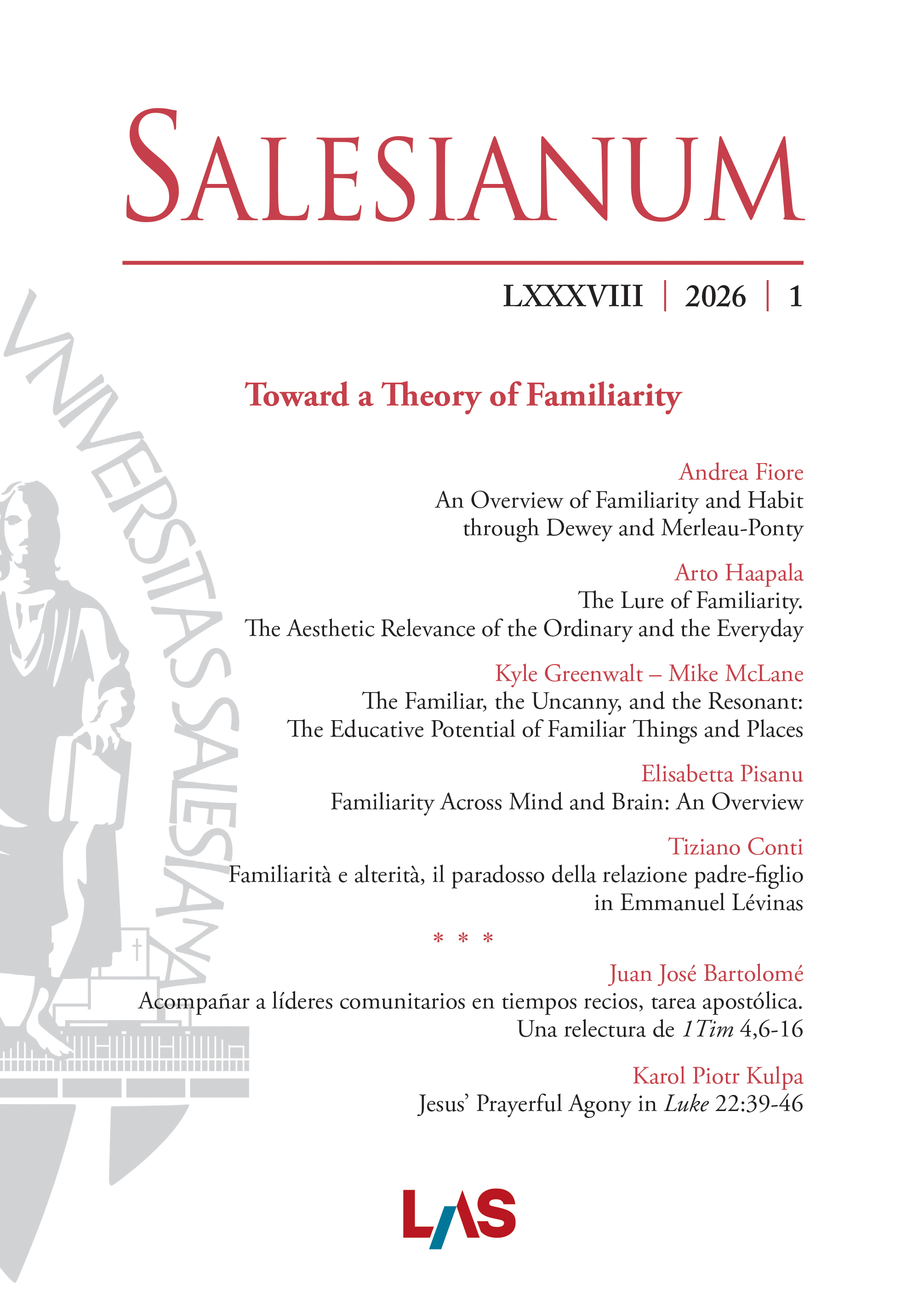La metafisica del Sofista nell'orizzonte della protologia (II parte)
Salesianum vol. 72 (2010) n. 4, 629-654
Section: Recensiones
Sommario
In quest’articolo mi propongo di offrire un’interpretazione della metafisica dei cinque generi del Sofista platonico, sulla base dell’ultimo paradigma ermeneutico inerente gli studi della scuola di Tubinga-Milano. L’ultimo paradigma ermeneutico del pensiero platonico concentra l’attenzione sulle “dottrine non scritte” e sul loro nucleo metafisico, ossia la protologia, dottrina dei principi supremi dell’Uno e della Diade. L’Uno, principio di unità, e la Diade, principio di molteplicità, fondano l’essere, inteso come unimolteplicità. Sulla base di tale impostazione di fondo del pensiero platonico e dell’articolato sistema metafisico, che su tale interpretazione si basa, tento di interpretare i cinque generi sommi del Sofista: essere, identico, diverso, movimento e quiete, cercando di mostrare la trascendenza dell’essere, dell’identico e del diverso sugli altri due generi e la loro profonda valenza non solo nell’ambito della sistematica platonica, ma anche in seno ad una rinnovata proposta metafisica nell’epoca attuale
Abstract
In this article I propose to afford an interpretation of the metaphysics of the five genus of the platonic Sophist, on the base of the last hermeneutic paradigm, concerning the studies of the school of Tubinga-Milano. This last hermeneutic paradigm of the platonic thought concentrates the attention on the “unwritten doctrines” and on their metaphysical nucleus, the prothology, doctrine of the supreme principles of the One and the Diades. The One, principle of unity and the Diades, principle of multiplicity, found the being, understood as synthesis of unity and multiplicity. On the base of this general statement of platonic thought and of the articulated metaphysical system, which is founded on this interpretation, I try to interpret the five great genus of Sophist: the being, the same, the different, the movement and the quiet, searching to prove the transcendence of the being, of the same and of the different on other two genus and their deep valence about the platonic System and about a renovated metaphysical proposal in the actual age.
